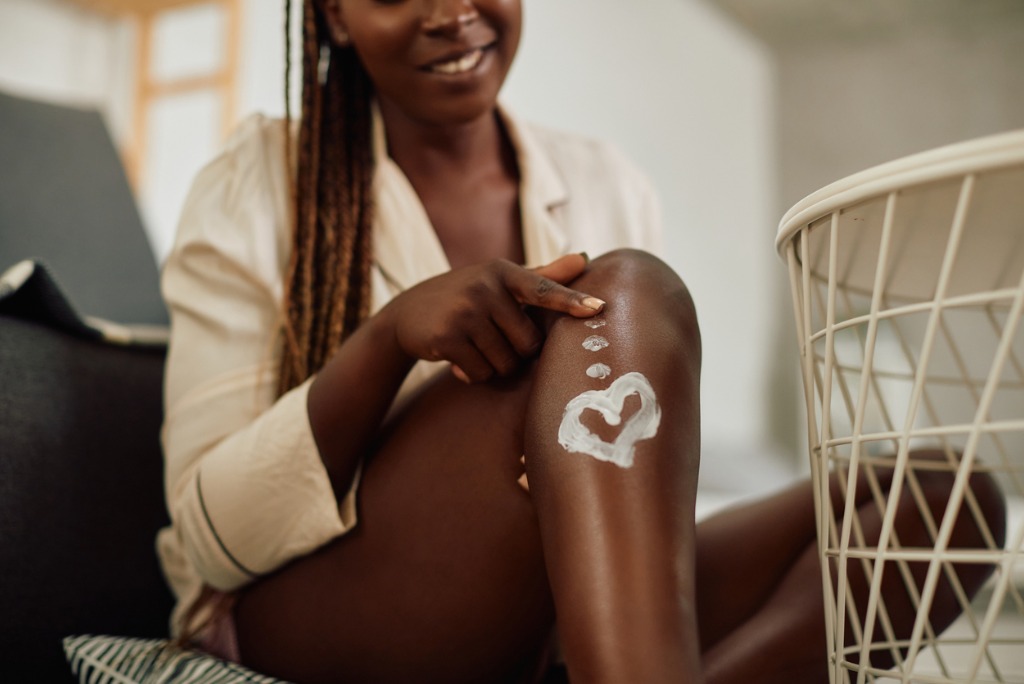Prurigo nodularis (PN) is a skin condition that causes itchy, hard bumps on the skin. It may be incredibly frustrating to manage, and many people struggle with controlling their prurigo nodularis symptoms. Unfortunately, there currently is no cure for the condition, so long-term management may be necessary.
There are several self-care techniques that may help you manage the symptoms associated with the condition. If you are one of the estimated 87,634 Americans affected by prurigo nodularis each year, the following self-care tips may help you break the itch-scratch cycle and find relief.
5 Self-care Tips for Relieving Prurigo nodularis
When trying to discover ways to relieve your symptoms, it is often best to start by finding ways to break the itch-scratch cycle. Itchy prurigo nodularis bumps can be incredibly irritating, but scratching them may make matters worse. Once you start scratching, it may be difficult to stop. The following self-care tips may help break this cycle and reduce your symptoms.
1. Cover and Protect Prurigo Nodularis Lesions
One way to avoid the urge to scratch or pick at skin lesions is to cover them. This may be done by wearing pants and long-sleeved shirts. Wearing a bandage over prurigo nodularis lesions may also assist you in avoiding scratching or picking at the affected area. However, if you find yourself continuing to itch the lesions through your clothes or bandage, your dermatologist or doctor may recommend a medicated tape to help you stop the itch. The medication on the tape helps to reduce itching, while the tape helps to cover and protect your lesions.
2. Wear Gloves or Mittens to Prevent Scratching
Wearing gloves or mittens can act as a barrier between your skin and your nails. This helps to create a physical reminder to not scratch. Keeping your nails short may also prevent you from accidentally scratching yourself when you are asleep or unaware of what you are doing. In addition, when your nails are short, they are less likely to damage your skin. If you are having trouble breaking the itch-scratch cycle, consider using gloves or mittens to help you avoid scratching.
3. Manage Stress
Stress is an underlying factor in many skin conditions, including PN. When you are stressed, your body releases increased levels of cortisol, which may lead to further itching and worsen your symptoms. Effectively managing stress may reduce the severity of your lesions. Consider implementing practices such as yoga or meditation into your daily routine and avoid activities that increase your stress level.
4. Avoid Triggers
The exact cause of prurigo nodularis is unknown, but there are certain factors that may trigger flare-ups. Each individual may have different triggers, and it is important to identify what those are to avoid them. If you have difficulty identifying your triggers, consider talking to a dermatologist and keeping a diary of your symptoms. This will help you pinpoint what triggers your flare-ups. Common triggers of the condition include:
- Stress
- Heat
- Humidity
- Dry skin
- Rough fabrics like wool or polyester
- Certain skin products
5. Use Moisturizers and Mild Soaps
As mentioned above, dry skin is a common trigger of PN. To keep your skin hydrated and healthy, use gentle soaps and moisturizers. Avoid using scented products, as they may irritate the skin further. It is also important to avoid hot water when washing your lesions – lukewarm water is best. If you are unsure which products to use, consult with a dermatologist or doctor. Furthermore, having a daily skincare routine may play a significant role in managing PN and reducing the risk of flare-ups.
Find a Prurigo Nodularis Clinical Trial at Olympian Clinical Research
Although self-care may go a long way in relieving prurigo nodularis symptoms, it may not always be enough. Participating in clinical trials may help you get closer to finding relief from your condition. At Olympian Clinical Research (OCR), we are dedicated to helping individuals explore new treatments and therapies that may help alleviate prurigo nodularis symptoms. We offer compassionate care and are committed to providing the answers you need to get closer to finding relief. Contact us today to see if you qualify to participate in a clinical research study with OCR.

Recent Comments